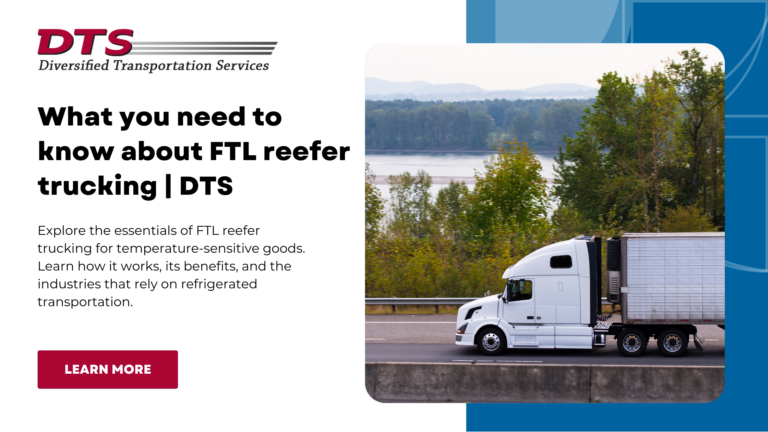
Refrigerated trucking (AKA reefer trucking) is essential for transporting perishable goods that need a controlled temperature environment. It helps ensure that food, pharmaceutical products, and other temperature-sensitive goods reach their destinations in optimal condition.
How does full truckload reefer shipping work? What major benefits does it offer? Let’s take a closer look at this popular transportation method below.
Reefer truckload shipping is the go-to transportation method for companies dealing with perishable goods. Drivers use refrigerated trucks to transport temperature-sensitive cargo, often across long distances.
These specialized trucks have refrigerated units to maintain a consistent temperature throughout the journey. Cooling systems prevent overheating and cultivate the right environment to keep cargo in good condition.
Due to the combination of refrigeration units and insulating materials, vehicles used for refrigerated trucking tend to be taller than standard ones. They are also designed to avoid odor absorption over years of use.
A wide range of temperature-sensitive goods are transported with reefer trucking, including:
Teams must carefully handle temperature-sensitive items while storing, loading, or unloading them. This is crucial to maintaining the right temperature and environment at all times.
Reefer truckload shipping is critical for industries that rely on transporting perishable goods. These include:
Want to learn more? Check out our blog post: What Industries Rely On Refrigerated Truck Transportation?
Multiple types of refrigerated trucks transport cargo around the world each day. These include:
Full truckload (FTL) reefer shipping is a fantastic option for businesses transporting temperature-sensitive goods in large volumes. Here are the main benefits:
By using FTL refrigerated trucking, businesses across various industries can help ensure their products arrive at their destinations safe and sound. Storing perishable goods and other temperature-sensitive items in refrigerated trucks can also prevent waste, which saves your business money and helps keep your operations sustainable.
Want to know more? You can learn more about refrigerated shipping on our blog, which includes posts about the role of temperature control in freight delivery and how to ship perishable goods safely and efficiently.
Need to ship temperature-sensitive goods for your business? Get in touch with DTS for help and advice.
Whether you're a company looking to improve one facet of your supply chain, your entire supply chain, or simply looking for a transportation and logistics consultation, we can help.